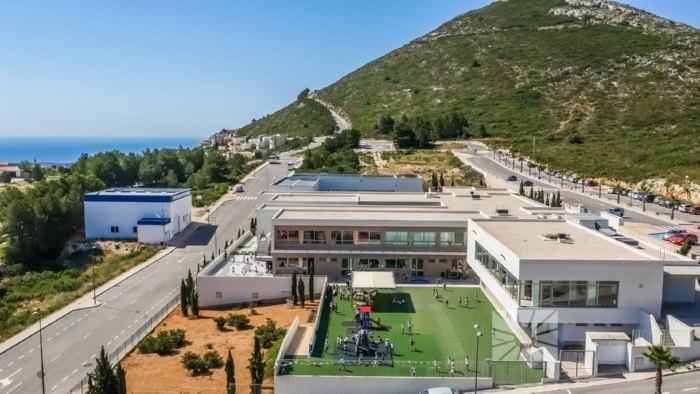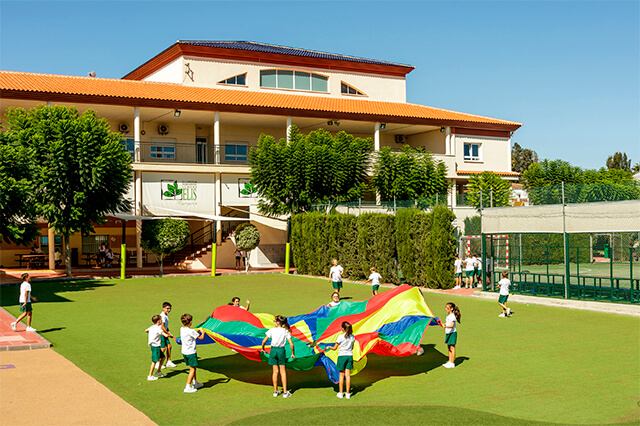Educational Institutions in Costa Blanca, Spain: Public, Private, and International Schools
Costa Blanca is famous for the top-quality education it offers. The institutional affiliations stand out of the crowd as students there enjoy a versatile curriculum and can obtain education in a bilingual context.
Finding the right school for kids is a fundamental thing when you start living in a new country. In this article, we have gathered the most essential facts and details about top schools in Costa Blanca. So, if you are planning to move to Spain, this guide will come in handy for you and you can also contact the happylife.es managers and they will provide information that concerns you regarding the organization of life in Alicante.
Is Education System in Spain Good Enough?
System of education in Spain is really advanced as children studying there can get a solid basis and learn the essentials. More so, Spain is a good choice for school graduates to continue studying as this country boasts some of the best universities.
There is no unified national education system countrywide as each region in Spain has its own autonomous system of education. In general, there is a vast array of public, private, and international schools in Spain.
For children from 6 to 16 years of age, education in Spain is compulsory and is provided for free. For students between 16 and 18 years old, education is not obligatory. At this point, students actually have options of getting vocational training or obtaining a Bachelor’s degree.
Public education in Spain provides educational opportunities for children from 3 years of age up to the point when they finish their Mandatory Secondary School (ESO). Public schools provide cost-free education and each student is guaranteed a place in state educational facilities (since studying is compulsory).

What to Take into Consideration When Picking a School in Spain?
Students are accepted into state schools according to their place of residence (i.e. the enrollment is address-based). Thus, some schooling procedures, including the application period or school hours, may vary from one region to another. Costa Blanca particularly is under the rule of the Autonomous Government of Valencia.
The following schools are subsidized by the Spanish government:
- Public
- Private
- Semi-private
- International
Check out some of the tips how to find a school good for international students in Costa Blanca:
- The main language of studying is Spanish (Castellano). Depending on the region of the country, the second official language is the one that is local. Subsequently, apart from Spanish, another official language in Costa Blanca is Valencian.
- If you plan to enroll in one of the local schools, keep in mind that the application period starts in May. It is also possible to send the application outside of this period, but the options may not vary as much.
- When applying for a state school, the essential factor is the residential address as it is decisive for the place you will be accepted. Therefore, the school you will be enrolled will be situated nearby your place of residence.
What Languages Can One Learn in Spanish Schools?
Castellano Spanish is a language that is obligatory for learning in Spanish state schools. Nonetheless, some colleges, schools, and universities additionally teach the second official language depending on the region. Some of these languages are Catalan, Valencian, Basque or Galician.
Since schools and colleges of Costa Blanca are under the rule of Valencian Community, students may also learn Valencian apart from Spanish. What is more, the Valencian language bears significance in state schools. Still, do not worry about it as students are greatly supported throughout their learning process.
If you hesitate whether to enroll your child into a state or a private school in Spain, take into consideration child’s age as well as motivation and desire to integrate into social life. For example, if your child fits primary school or even nursery, opt for state facilities. Public schools will help children integrate into the society quicker and easier. The older a child is, the more difficult it will be to learn a new language and start with a completely new curriculum. Thus, children’s age and their level of Spanish are essential factors in picking a school.

How Expensive Are International Schools in Costa Blanca?
Student fees in Spanish international schools vary from €2,000 to €15,000 per year. Keep in mind that this fee does not entail transport, food, stationery, excursions, and extracurricular activities. These expenditures may cost an additional €800 or €2,000 yearly.
International Schools of Costa Blanca
Check out the list of well-established international schools of Costa Blanca, Alicante:
King’s College
Otherwise known as the British School of Alicante, this educational institution has great reputation. Children from 3 years of age are enrolled in this school. The maximum age is 18 years (the Bachelor’s program). This school is bilingual (Spanish and English) and adheres to the Spanish and the English National Curricula.
The Lady Elizabeth School
Located in Benitachell, Alicante, and established in 1987, this educational establishment provides primary and secondary studying levels. Students can study both Spanish and English curricula. The Lady Elizabeth School has the reputation of being one of the most exclusive English language schools. Students graduating from it have a chance to further apply to colleges and universities in the UK and other European countries.
Xabia International College
This educational institution accepts students starting from pre-nursery level to the 6th grade. The college adheres to the standards of the Spanish and the British National Curricula. The college has three levels: infant, junior, and secondary.
Phoenix International School
This international school is located in San Miguel de Salinas in Costa Blanca. It is a great option for students from Orihuela Costa, Torrevieja, and the vicinities. The educational program follows the British National Curriculum. Children from 4 to 18 years of age can be enrolled in this school, which is divided into the following stages: early years, primary, secondary, and college.
Sierra Bernia School
The school was established in 1973 and is known as the oldest British school in the region of Costa Blanca. The precise location is Alfaz del Pi in the vicinities of Benidorm. It provides education to international students from 3 to 18 years of age according to the British standards.
Skandinaviska Skolan Costa Blanca
Located in Orihuela Costa, Alicante, the school provides primary education to students from pre-school level to the 9th grade. As it may be inferred from its name, mainly students from Norway, Sweden, and Finland apply to this school, which adheres to the Swedish curriculum. Nonetheless, from the first year of studies, students also receive instructions in Spanish and English.
Costa Blanca Norwegian School
Den Norske Skole Costa Blanca was founded in 1972 and offers education to primary- and secondary-level students. It is considered to be one of the best schools in Spain adhering to the Norwegian curriculum. It belongs to the category of private schools that receive support from the state after approval of the Norwegian authorities.
Lycee Fraincais Alicante
This is a French school that has been operating in El Campello, Alicante, for more than 50 years already. It enrolls students starting from the infant education level (when students are 3 years of age) to the Bachelor`s level (when students are 17-18 years of age). The school is multilingual since students starting from 3 years of age acquire three languages. More so, the school emphasizes sports and cultural development.

Are There Private Spanish Schools Apart from International Schools in Spain?
International and public schools in Spain predominantly adhere to the British curriculum. Apart from international schools, there are some private schools in Costa Blanca, which provide premium-quality bilingual education.
During school days, most of these schools offer transportation for students. When studying in private schools, students have a chance to study less Valencian, which is actually great for those students who do not plan to stay in Costa Blanca for more than two years.
Colegio El Valle Alicante
This college provides high-quality education to international students from the primary to Bachelor’s level (18 years of age). The college is bilingual: apart from English and Spanish as the main languages, it teaches German as the second foreign language.
New Castellar College
Established in 2006 and located in San Pedro del Pinatar, this bilingual college adheres to the standards of the Spanish curriculum. Still, the education is conducted both in Spanish and in English. The educational levels that the college covers range from nursery to Bachelor’s. Since the college is located in the Murcia region, the official language is Spanish.
European School of Alicante
The school was established in 2002 by officials from different European countries. It offers four language sections: English, Spanish, German, and French. Upon passing the examinations, graduates of this school get the European Bachelor`s diploma. Thus, the diplomas are officially recognized in countries that are members of the EU.



 This material is based upon work supported by the National Science Foundation under Grant No. NSF-HRD-0533197 .
This material is based upon work supported by the National Science Foundation under Grant No. NSF-HRD-0533197 .